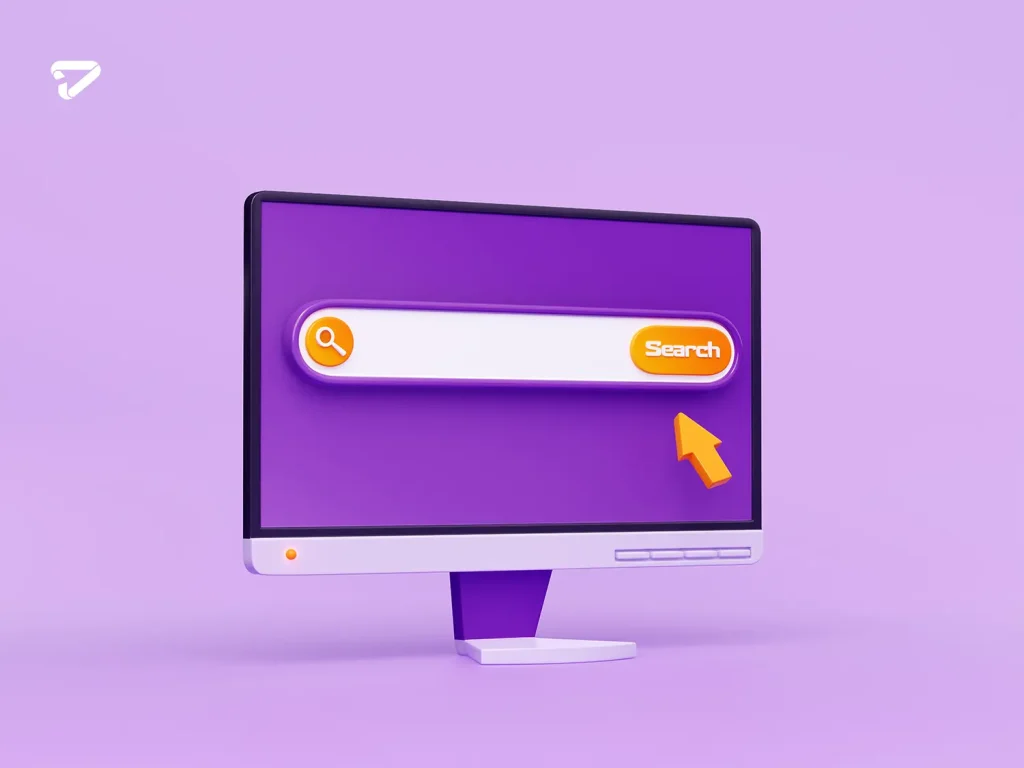
What is Google E-E-A-T & How To Demonstrate It For SEO
Google’s E-E-A-T framework emphasizes the importance of expertise, experience, authoritativeness, and trustworthiness in assessing the quality of web content.
In the ever-evolving landscape of search engine optimization (SEO), one concept has gained significant traction in recent years: E-E-A-T.
This acronym, which stands for Expertise, Authoritativeness, Trustworthiness, is a set of guidelines that Google uses to evaluate the quality and credibility of web content.
As businesses strive to rank higher in search results and establish themselves as authoritative sources in their respective industries, understanding and demonstrating E-E-A-T has become crucial for SEO success.
Imagine you’re a prospective customer searching for a reputable company to handle your financial investments.
You’ll likely gravitate towards websites that exude expertise, provide trustworthy information, and have a strong reputation in the industry.
This is precisely what Google aims to achieve by prioritizing E-E-A-T in its search rankings – delivering high-quality, credible content to users.
In this comprehensive guide, we’ll dive deep into the concept of E-E-A-T, exploring its significance, the factors that contribute to it, and practical strategies for demonstrating it effectively.
Whether you’re a business owner, content creator, or SEO professional, this post will provide you with valuable insights and actionable steps to enhance your website’s credibility and improve your search engine visibility.
if you want to know more and go deeper in first step you have to understand what is seo and how it is work.

What is Google E-E-A-T?
E-E-A-T stands for Expertise, Authoritativeness, Trustworthiness, and is a set of guidelines that Google uses to evaluate the quality and credibility of web content.
These factors play a crucial role in determining a website’s search engine rankings, particularly for queries related to Your Money or Your Life (YMYL) topics, which can significantly impact a user’s happiness, health, safety, or financial stability.
Let’s break down each component of E-E-A-T:
Expertise and Experience:
This refers to the level of knowledge, skill, or experience demonstrated by the content creator or website owner in a particular subject matter.
Google wants to ensure that the information provided is accurate, comprehensive, and written by someone with proven expertise in the field.
Authoritativeness:
Authoritativeness is about the reputation and credibility of the content creator or website.
Google looks for signals that indicate the website is a recognized authority in its industry, such as mentions or citations from reputable sources, awards, or accreditations.
Trustworthiness:
Trustworthiness relates to the website’s transparency, accuracy, and commitment to providing truthful and reliable information.
Google evaluates factors like the website’s history, policies, and user experience to determine its trustworthiness.
While E-E-A-T is not a direct ranking factor, it plays a significant role in how Google perceives and ranks web content.
By demonstrating expertise, authoritativeness, and trustworthiness, websites can improve their chances of ranking higher in search results, particularly for queries related to YMYL topics.
Why is E-E-A-T Important for SEO?
In today’s digital age, where information is abundant and easily accessible, users demand high-quality, credible content from reliable sources.
Google’s primary goal is to provide users with the most relevant and trustworthy search results, ensuring a positive user experience.
By prioritizing E-E-A-T, Google aims to surface content that meets these user expectations, thus improving the overall quality of search results.
Demonstrating E-E-A-T has several benefits for businesses and websites:
Improved Search Rankings:
By meeting Google’s E-E-A-T guidelines, websites can improve their visibility and ranking for relevant search queries, driving more organic traffic to their site.
Increased User Trust and Engagement:
Users are more likely to engage with and trust content that comes from credible, authoritative sources.
By demonstrating E-E-A-T, websites can foster user trust, leading to higher engagement, longer dwell times, and potentially increased conversions.
Competitive Advantage:
In industries with high competition, demonstrating E-E-A-T can set a website apart from its competitors, positioning it as a go-to resource for reliable and trustworthy information.
Future-Proof Your SEO Strategy:
As Google continues to refine its algorithms and prioritize high-quality content, adhering to E-E-A-T principles can help websites stay ahead of the curve and maintain their search engine visibility.
By understanding and implementing E-E-A-T best practices, businesses can not only improve their SEO performance but also establish themselves as reputable and trustworthy sources in their respective industries.

How to Demonstrate E-E-A-T for SEO
Demonstrating E-E-A-T for SEO requires a comprehensive approach that encompasses various aspects of your website and content strategy.
Here are some practical strategies to help you effectively showcase your expertise, authoritativeness, and trustworthiness:
1. Establish Expertise
Author Bios and Credentials
One of the most effective ways to demonstrate expertise is through author bios and credentials.
Provide detailed information about the authors or content creators, highlighting their education, experience, qualifications, and accomplishments in the relevant field.
This helps establish their credibility and shows Google that the content is being produced by knowledgeable and skilled individuals.
In-Depth and Comprehensive Content
Create high-quality, in-depth, and comprehensive content that thoroughly covers the topic at hand.
Use authoritative sources, cite references, and provide detailed explanations and examples.
This showcases your expertise and demonstrates a deep understanding of the subject matter.
Thought Leadership and Industry Participation
Position yourself or your brand as a thought leader in your industry by actively participating in relevant communities, conferences, and events.
Share your expertise through public speaking engagements, guest posts, or by contributing to industry publications.
These activities can help build your reputation and demonstrate your expertise to Google.
2. Build Authoritativeness
High-Quality Backlinks
Earn high-quality backlinks from reputable and authoritative websites in your industry.
These backlinks act as endorsements, signaling to Google that your website is a credible and trustworthy source of information.
Online Mentions and Citations
Monitor and encourage online mentions and citations of your website or brand from trusted sources.
This can include mentions in news articles, industry publications, or social media posts from influencers or thought leaders in your field.
Accreditations and Awards
Highlight any relevant accreditations, certifications, or awards your business or website has received.
These credentials can significantly boost your authoritativeness and credibility in the eyes of Google and your target audience.
3. Foster Trustworthiness
Transparent Policies and Privacy Information
Clearly communicate your website’s policies, terms of service, and privacy information to users.
This transparency builds trust and shows Google that you prioritize user safety and data protection.
User-Friendly Design and Experience
Ensure your website has a clean, user-friendly design and provides a positive user experience.
This includes fast load times, easy navigation, mobile-responsiveness, and accessible content. A trustworthy website prioritizes user experience and usability.
Secure and Reputable Hosting
Host your website with a reputable and secure hosting provider.
This helps prevent security breaches, downtime, and other issues that could negatively impact user trust and Google’s perception of your website.
Positive Online Reputation
Monitor and actively manage your online reputation by responding to user reviews, addressing complaints, and promoting positive feedback and testimonials.
A strong online reputation can significantly boost your website’s trustworthiness.
4. Leverage Structured Data and Schema Markup
Structured data and schema markup can help search engines better understand and interpret the content on your website, making it easier for them to assess your E-E-A-T signals.
Implement schema markup for various elements, such as author bios, organization information, reviews, and ratings, to provide additional context and enhance your website’s visibility and credibility in search results.
5. Continuous Monitoring and Improvement
Demonstrating E-E-A-T is an ongoing process that requires continuous monitoring and improvement.
Regularly audit your website’s content, backlinks, online reputation, and user experience to identify areas for enhancement.
Stay up-to-date with Google’s latest guidelines and algorithm updates to ensure your E-E-A-T strategy remains effective and aligned with best practices.

Case Studies: Businesses That Leveraged E-E-A-T for SEO Success
While understanding the concept of E-E-A-T is crucial, witnessing real-world examples can provide valuable insights into how businesses have effectively implemented these principles to achieve SEO success.
Let’s explore a few case studies that showcase the impact of demonstrating expertise, authoritativeness, and trustworthiness.
Case Study 1: Health and Wellness Website
A popular health and wellness website recognized the importance of E-E-A-T, especially for their industry, which falls under the Your Money or Your Life (YMYL) category.
They took the following steps to enhance their E-E-A-T signals:
Established Expertise and Experience:
The website hired qualified medical professionals, nutritionists, and fitness experts to create in-depth, science-backed content.
Author bios were prominently displayed, showcasing their credentials and experience.
Built Authoritativeness:
The website actively sought and earned backlinks from reputable health organizations, medical journals, and trusted publications in the industry.
They also participated in relevant conferences and events, establishing themselves as thought leaders.
Fostered Trustworthiness:
Clear privacy policies, user-friendly design, and secure hosting were implemented to enhance trust.
The website also encouraged user reviews and testimonials, actively responding to feedback and addressing concerns.
The result? Within a year of implementing these E-E-A-T strategies, the website saw a significant increase in organic traffic, ranking for competitive health-related keywords, and improved user engagement metrics.
Case Study 2: Financial Advisory Firm
An established financial advisory firm recognized the need to demonstrate E-E-A-T, given the sensitive nature of their industry and the impact on their clients’ financial well-being.
Here’s how they approached it:
Established Expertise and Experience:
The firm highlighted the qualifications, certifications, and years of experience of their financial advisors and investment managers on their website and marketing materials.
Built Authoritativeness:
They earned backlinks from reputable financial publications, industry associations, and local business directories.
The firm also actively contributed thought leadership articles and insights to increase their online presence and authority.
Fostered Trustworthiness:
Transparency was a key focus, with clear communication of policies, fees, and investment methodologies.
The firm also showcased client testimonials, industry awards, and accreditations to reinforce their trustworthiness.
By focusing on E-E-A-T, the financial advisory firm not only improved its search engine rankings but also experienced an uptick in lead generation and client acquisition, as potential customers sought out trusted and authoritative sources for financial advice.
These case studies demonstrate the real-world impact of implementing E-E-A-T strategies and the potential benefits for businesses across various industries.
By leveraging expertise, building authoritativeness, and fostering trustworthiness, companies can enhance their online credibility, improve search engine visibility, and ultimately drive better business outcomes.
you want to know more about E-E-A-T? read the search engine journal topic.

Conclusion
In the ever-evolving world of SEO, demonstrating E-E-A-T (Expertise, Experience, Authoritativeness, Trustworthiness) has become a critical factor for success.
Google’s emphasis on providing users with high-quality, credible search results has made it imperative for businesses and websites to prioritize E-E-A-T in their content and overall online presence.
By implementing the strategies outlined in this guide, you can effectively showcase your expertise, build authoritativeness, and foster trustworthiness.
From creating in-depth and comprehensive content to earning high-quality backlinks, managing your online reputation, and leveraging structured data, each step contributes to the whole process.
By implementing the strategies outlined in this guide, you can effectively showcase your expertise, build authoritativeness, and foster trustworthiness.
From creating in-depth and comprehensive content to earning high-quality backlinks, managing your online reputation, and leveraging structured data, each step contributes to enhancing your website’s E-E-A-T signals.
Remember, demonstrating E-E-A-T is not a one-time effort but rather an ongoing process that requires continuous monitoring, adaptation, and improvement.
As Google’s algorithms evolve and user expectations change, it’s crucial to stay ahead of the curve and prioritize delivering high-quality, trustworthy content that meets the needs of your target audience.
By embracing E-E-A-T principles, you not only improve your chances of ranking higher in search results but also establish your brand as a reputable and authoritative source in your industry.
This, in turn, can lead to increased user trust, engagement, and potential conversions, ultimately driving business success.
Consistent effort, attention to detail, and a commitment to delivering value to your audience are key to mastering E-E-A-T and achieving long-term SEO success.
So, embrace this approach, stay vigilant, and watch your website’s credibility and search engine visibility soar.
E-E-A-T focuses on expertise, experience, authoritativeness, and trustworthiness to assess content quality, a key service offered by Danabak Agency for SEO in Charlotte.
FAQs
1. Does E-E-A-T apply to all types of websites and content?
While E-E-A-T is essential for all websites, it holds particular importance for websites dealing with Your Money or Your Life (YMYL) topics, such as finance, health, safety, or legal matters.
Google places a higher emphasis on E-E-A-T signals for these types of websites due to the potential impact on users’ well-being.
2. Can small businesses or new websites demonstrate E-E-A-T effectively?
Yes, small businesses and new websites can effectively demonstrate E-E-A-T by following the strategies outlined in this guide.
It may take time and consistent effort to build authoritativeness and credibility, but by creating high-quality content, earning reputable backlinks, and fostering trust with users, even new websites can establish their E-E-A-T.
3. How important are backlinks in demonstrating E-E-A-T?
Backlinks from authoritative and relevant websites play a crucial role in demonstrating authoritativeness and trustworthiness.
High-quality backlinks act as endorsements, signaling to Google that your website is a credible and valuable source of information.
However, backlinks should be earned naturally and not acquired through unethical means like link buying or link schemes.
4. Can user reviews and ratings impact E-E-A-T?
Yes, user reviews and ratings can contribute to your website’s perceived trustworthiness and authoritativeness.
Positive reviews and high ratings from satisfied customers or clients can reinforce your credibility in the eyes of Google and potential users.
However, it’s essential to maintain transparency and address any negative reviews or feedback appropriately.
5. How often should I audit and update my E-E-A-T signals?
There is no definitive timeline for auditing and updating your E-E-A-T signals, as it depends on various factors, such as the size of your website, the frequency of content updates, and changes in your industry or Google’s guidelines.
As a general rule, it’s recommended to conduct regular audits (e.g., quarterly or bi-annually) and make updates as needed to ensure your E-E-A-T signals remain accurate and aligned with best practices.
By addressing these frequently asked questions, you’ll gain a deeper understanding of E-E-A-T and its importance in SEO, as well as practical tips for implementing and maintaining an effective E-E-A-T strategy for your website.








